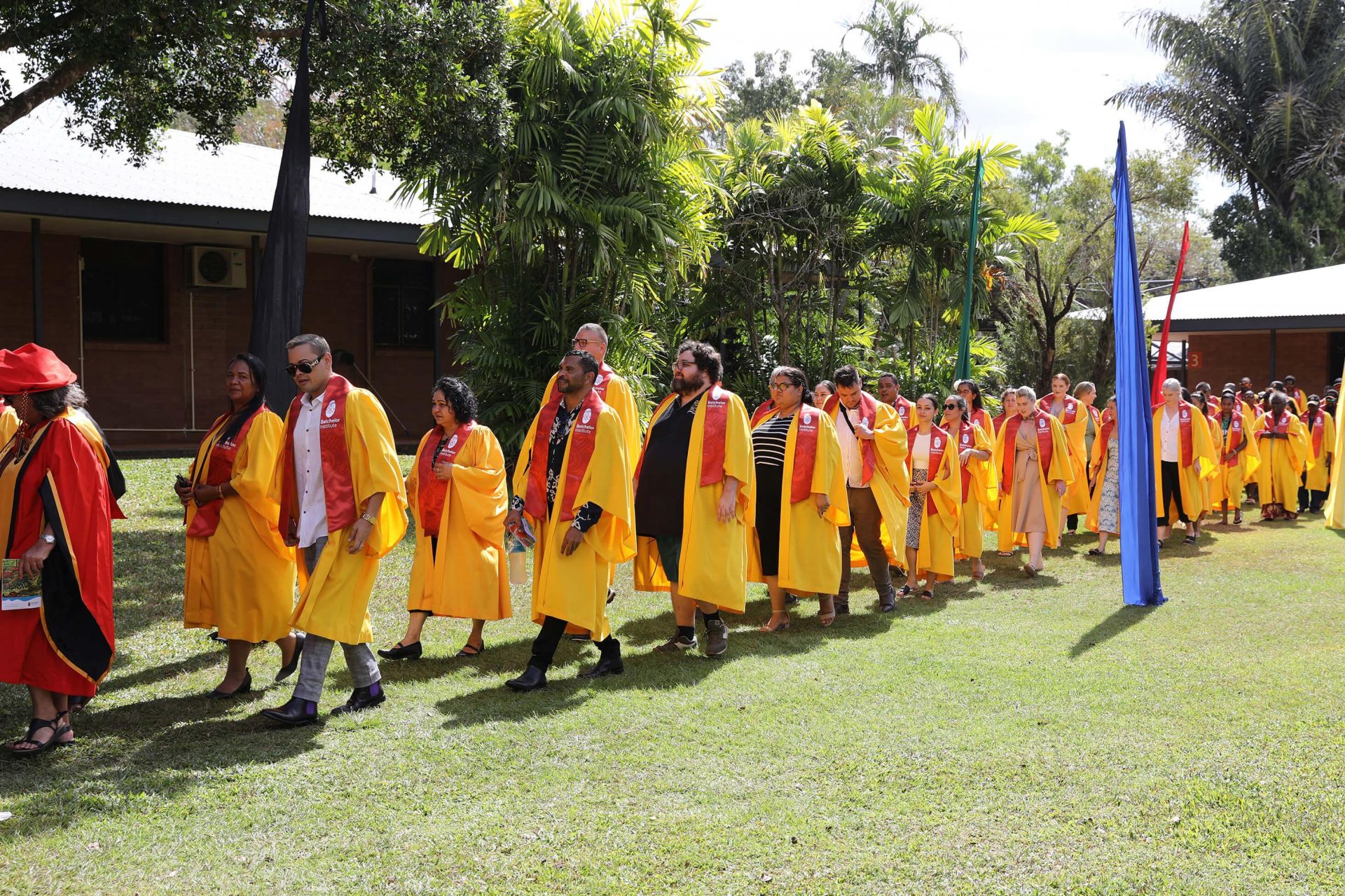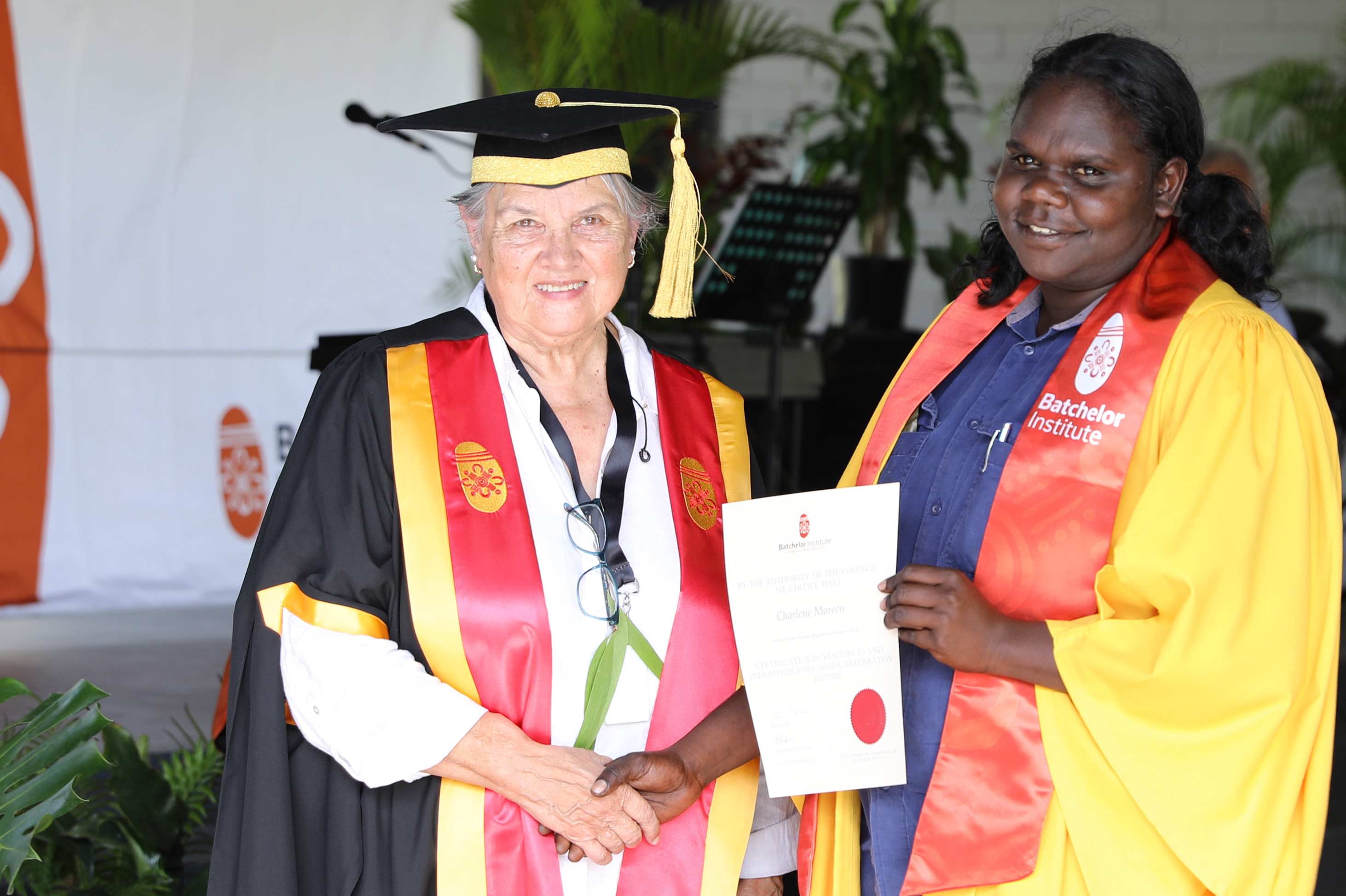

Batchelor Institute students celebrated their graduation at a moving and colourful ceremony that combined Western scholarly traditions with Aboriginal and Torres Strait Islander cultures in Batchelor on Thursday, June 3rd, 2021.
198 Aboriginal and Torres Strait Islander students from urban and remote Northern Territory communities, as well as interstate, shared the joy of having overcome the challenges presented by COIVD-19 to complete their qualifications.
They travelled from the isolation of communities like Yirkala, Daguragu and Jilkminggan to receive certificates earned by resilience and grit that will open doors for employment and new study opportunities.

Batchelor Institute’s Chair of Council, Pat Anderson AO, congratulated the graduates who she believes have contributed to an important legacy in their communities.
“Through pursuing their aspirations, completing their study, and training to broaden their skills and qualifications, they will inspire younger generations to follow in their footsteps,” she said.
Graduate Darren Braun was one of 18 to receive a Certificate IV in Aboriginal and/or Torres Strait Islander Primary Health Care and was recently awarded the 2020 VET Student of the Year at the NT Training Awards.
Darren now works as a Leadership Project Officer with AMSANT and is concurrently studying a Diploma of Aboriginal and/or Torres Strait Islander Primary Health Care with Batchelor Institute, as well as nursing at another university.
Charlie King OAM, was MC for the graduation ceremony, and Senior Australian of the Year Dr Miriam-Rose Ungunmerr Baumann AM was the keynote speaker.
Batchelor Institute 2021 Graduation Fact File
- Males make up 60% of graduates, females 40%
- 17 students live at Naiuyu/Daly River, 11 are from Lajamanu, and one is from Hold Hill, South Australia
- 46% of student are in full-time employment, 11% in part-time employment, 30% are unemployed and looking for full-time work, 9% are unemployed and looking for part-time work.
- 26% undertook a Certificate I level qualification, 55% undertook a Certificate II level qualification, and 13% undertook a Certificate III level qualification.
- Top six courses in order of graduand numbers were:
- Certificate I in Automotive Vocational Preparation (AUR10120) – 38
- Certificate II in Resources and Infrastructure work preparation (RII20120) – 31
- Certificate II in Family Wellbeing (10272NAT) – 18
- Certificate IV in Aboriginal and/or Torres Strait Islander Primary Health Care Practice (HLT40213) – 17
- Certificate II in Conservation and Land Management (AHC21016) – 14
- Certificate III in Community Services (CHC32015) – 14
